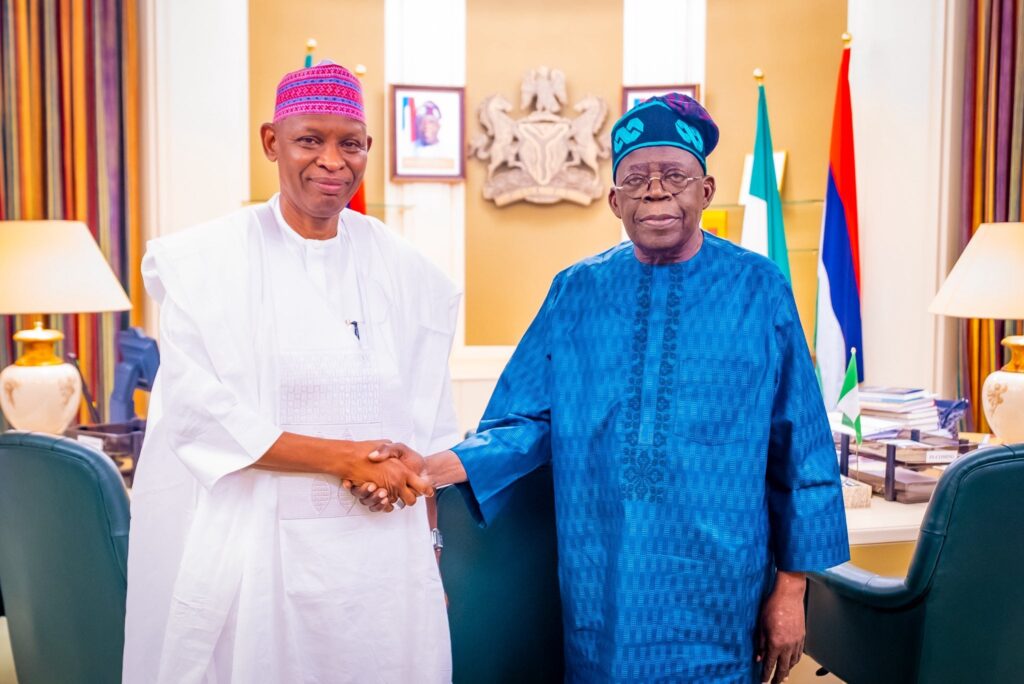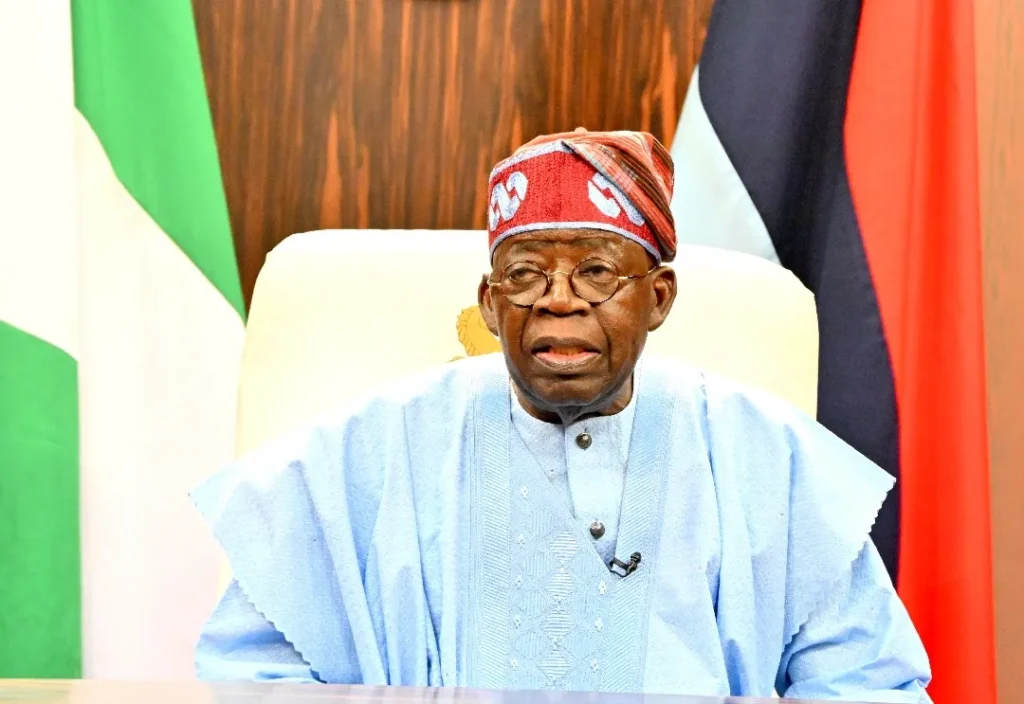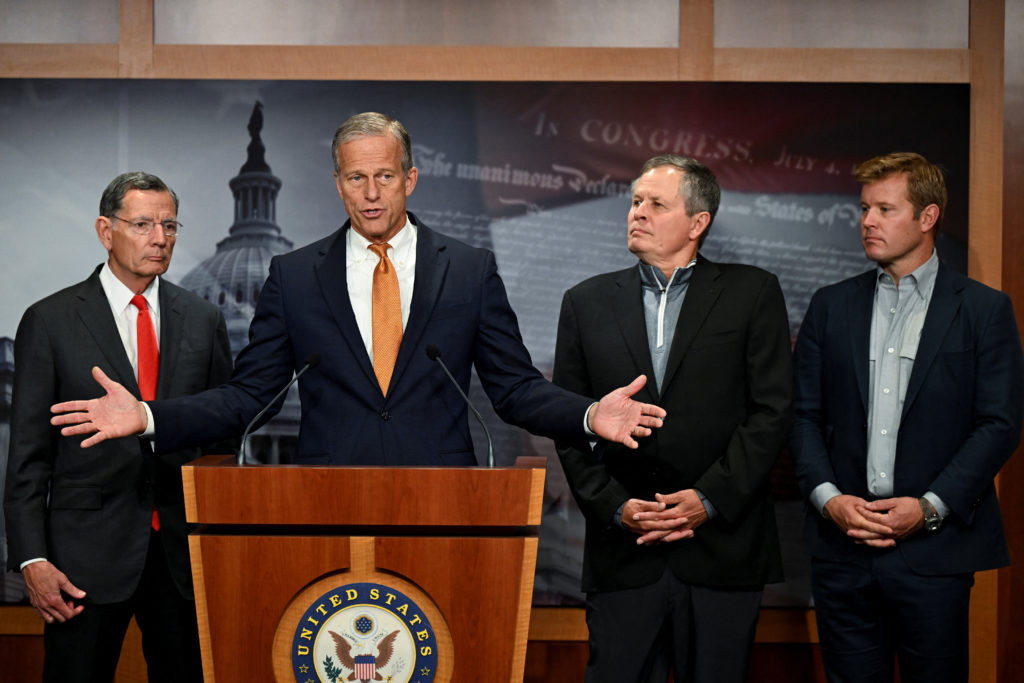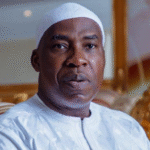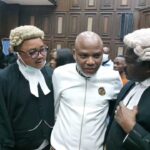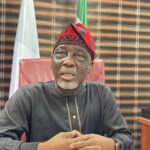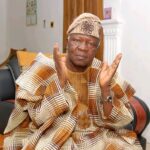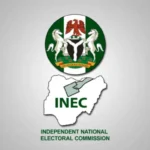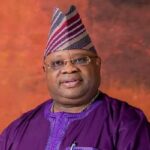Now Reading: Nigeria@65: We’ve turned the corner, worst is over – Tinubu
-
01
Nigeria@65: We’ve turned the corner, worst is over – Tinubu
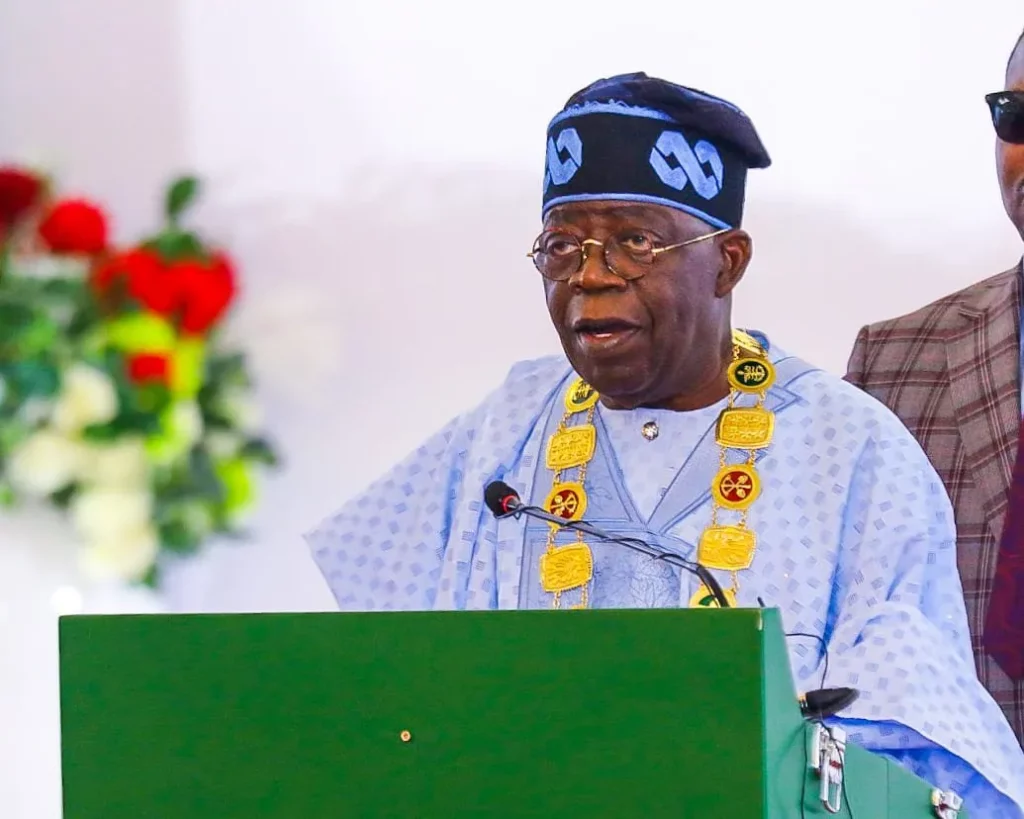
Nigeria@65: We’ve turned the corner, worst is over – Tinubu
President Bola Tinubu has highlighted the remarkable progress and giant strides the country has made in healthcare, education and economic growth since independence in 1960.
In a national broadcast commemorating the nation’s 65th anniversary on October 1, he boasted that Nigeria had finally turned the corner and emphasised that the worst was over.
“Yesterday’s pains are giving way to relief. I salute your endurance, support, and understanding. I will continue to work for you and justify the confidence you reposed in me to steer the ship of our nation to a safe harbour.”
He stressed that Nigerians now enjoy better public services than at the dawn of nationhood, underlining this as a testament to the nation’s resilience and steady development.
“Fellow Nigerians, we must recognise and celebrate our significant progress. Nigerians today have access to better education and healthcare than in 1960,” President Tinubu declared.
He recalled that at Independence, Nigeria had only 120 secondary schools enrolling approximately 130,000 students and just two tertiary institutions—the University of Ibadan and Yaba College of Technology. By contrast, as of 2024, there are more than 23,000 secondary schools, 274 universities, 183 polytechnics, and 236 colleges of education across the country.
“We have experienced a significant surge in growth across every sector of our national life since Independence—in healthcare, infrastructure, financial services, manufacturing, telecommunications, information technology, aviation, and defence,” he added.
President Tinubu attributed the progress to his administration’s reforms since assuming office in May 2023. “Upon assuming office, our administration inherited a near-collapsed economy caused by decades of fiscal policy distortions and misalignment that had impaired real growth. We chose the path of reform. We chose the path of tomorrow over the comfort of today.”
He highlighted courageous decisions such as ending fuel subsidies and multiple foreign exchange rates, redirecting resources toward education, healthcare, national security, agriculture, and critical infrastructure, including roads, power, and broadband.
Acknowledging the nation’s challenges over 65 years—including civil war, military rule, and political crises—President Tinubu praised the enduring spirit of Nigerians. “While our system and ties that bind us are sometimes stretched by insidious forces opposed to our values and ways of life, we continue to strive to build a more perfect union where every Nigerian can find better accommodation and find purpose and fulfilment.”
The address, his third since he assumed office as president, reads in part:
“Our founding heroes and heroines—Herbert Macaulay, Dr Nnamdi Azikiwe, Sir Abubakar Tafawa Balewa, Chief Obafemi Awolowo, Sir Ahmadu Bello, Margaret Ekpo, Anthony Enahoro, Ladoke Akintola, Michael Okpara, Aminu Kano, Funmilayo Ransome-Kuti, and other nationalists—believed it was Nigeria’s manifest destiny to lead the entire black race as the largest black nation on earth.
“For decades, the promise of our Independence has been tested by profound social, economic, and political challenges, and we have survived. While we may not have achieved all the lofty dreams of our forebears, we have not strayed too far from them. In 65 years since our Independence, we have made tremendous progress in economic growth, social cohesion, and physical development. Our economy has experienced significant growth since 1960.
“Although, it is much easier for those whose vocation is to focus solely on what ought to be, we must recognise and celebrate our significant progress. Nigerians today have access to better education and healthcare than in 1960. At Independence, Nigeria had 120 secondary schools with a student population of about 130,000. Available data indicate that, as of 2024, there were more than 23,000 secondary schools in our country. At Independence, we had only the University of Ibadan and Yaba College of Technology as the two tertiary institutions in Nigeria. By the end of last year, there were 274 universities, 183 Polytechnics, and 236 Colleges of Education in Nigeria, comprising Federal, State, and private institutions. We have experienced a significant surge in growth across every sector of our national life since Independence – in healthcare, infrastructure, financial services, manufacturing, telecommunications, information technology, aviation and defence, among others.
“Our country has experienced both the good and the bad times in its 65 years of nationhood, as is normal for every nation and its people. We fought a bitter and avoidable civil war, experienced military dictatorships, and lived through major political crises. In all these, we weathered every storm and overcame every challenge with courage, grit, and uncommon determination. While our system and ties that bind us are sometimes stretched by insidious forces opposed to our values and ways of life, we continue to strive to build a more perfect union where every Nigerian can find better accommodation and find purpose and fulfilment.
“Fellow Compatriots, this is the third time I will address you on our independence anniversary since I assumed office as your President on May 29, 2023. In the last 28 months of my administration, like our founding fathers and leaders who came before me, I have committed myself irrevocably to the unfinished nation-building business.
“Upon assuming office, our administration inherited a near-collapsed economy caused by decades of fiscal policy distortions and misalignment that had impaired real growth. As a new administration, we faced a simple choice: continue business as usual and watch our nation drift, or embark on a courageous, fundamental reform path. We chose the path of reform. We chose the path of tomorrow over the comfort of today. Less than three years later, the seeds of those difficult but necessary decisions are bearing fruit.
Source: The Sun

